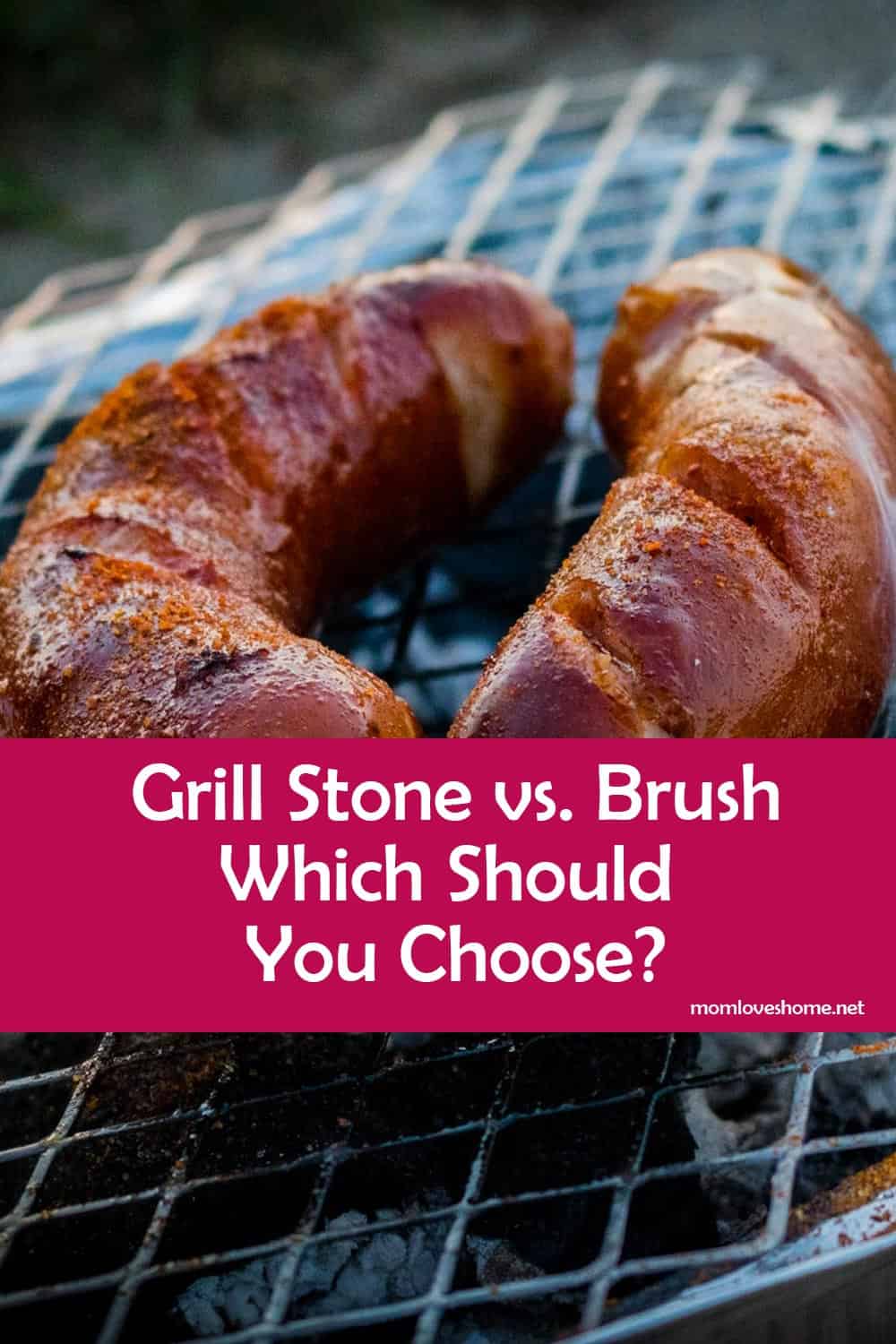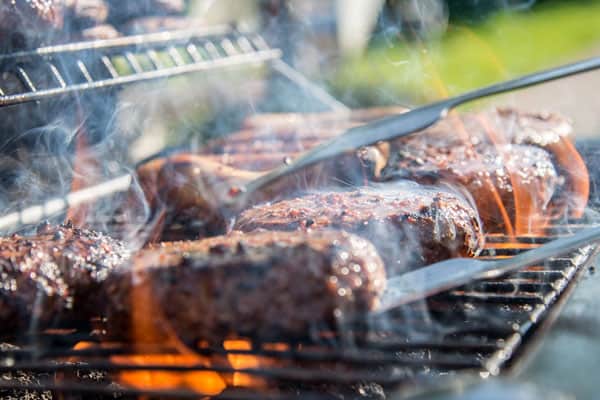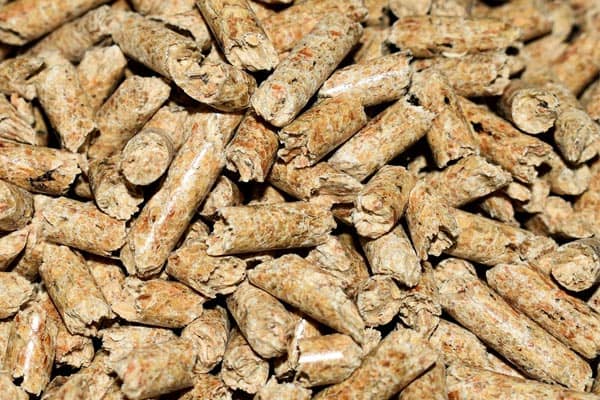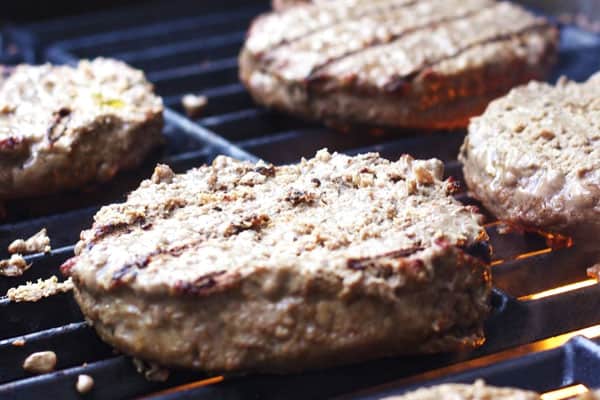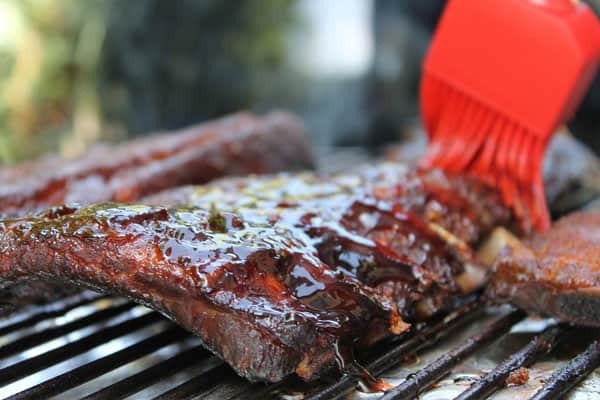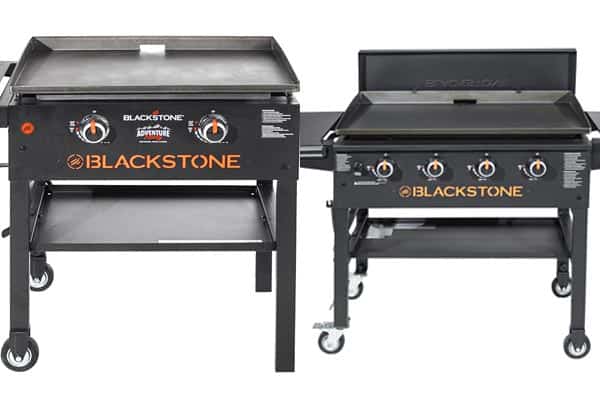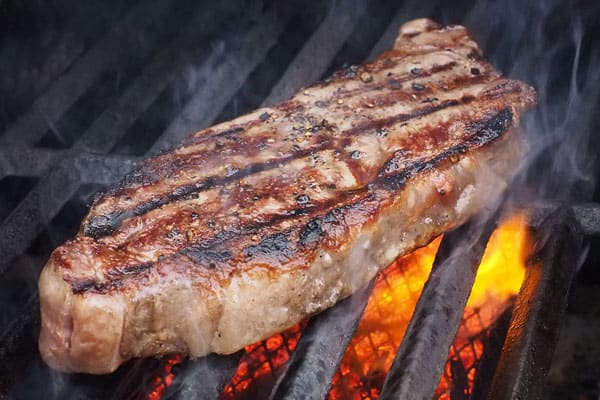Grill Stone vs. Brush – Which Should You Choose?
One of the not-so-fun parts of grilling is cleaning the grill when you finish with it. However, cleaning it is essential to keep it working in top shape.
The two main ways to clean it are a grill stone or a grill brush, but which is better? Does one outperform the other, and does the type of grill you have factor into whether you pick a grill stone or brush?
We’re going to break down everything you need to know about a grill stone vs. a brush. Our goal is to give you all of the information you need to make an informed decision and purchase the product that best suits your needs.
This way, you’ll have a wonderfully clean gas or charcoal grill that’s ready to go any time you need it.
Grill Stone vs. Brush? Both grill stones and grill brushes can help you clean your grill between uses. A grill brush can help scrape away burned-on debris that comes with hard use, and a grill stone is a block that helps remove light surface stains. Deciding to go with a grill stone vs. a grill block will come down to your personal preferences.
What is a Grill Stone?
A grill stone is a cleaning block with a pumice-like material, and it usually uses recycled materials in the makeup.
A quality grill stone gives you a non-toxic and chemical-free way to clean baked-on items from your grill’s grates. You can safely and effectively use it on all grill grates without a problem, and you only need a little water to get started.
To use it, get the part of the brick wet that you’re going to put against the grate, and use back and forth strokes to remove any stuck, baked, or burnt-on items.
The brick will start to conform to your grate’s shape and size, and this makes it easy to slide it back and forth or clean between the grates.
When you finish, all you have to do is flip your grates over and repeat the process with the other side before rinsing it and wiping it dry with a cloth or paper towel and leave the stone out to dry.
What is a Grill Brush?
You can get grill brushes that have wire bristles or feature a bristleless design, and they usually come outfitted with durable handles with a comfortable grip.
A nicely built grill brush will give you a fast and effective way to strip cooking leftovers from your grill’s surface, and some brushes come with scrapers that help you scrub at stubborn spots. You can use it dry on your grill grates without an issue, and you won’t need water.
You can use this brush when your grill’s grates are hot or cold, and all you have to do is start at one end and push your brush along the grates in a back and forth motion.
You should go in line with the grates to ensure the brush gets between them, and you pass it back and forth until it gets all of the stuck-on items off.
You can wipe the grates with a damp rag when you finish, and you want to rinse the brush out and leave it to dry between uses.
Cleaning a Charcoal Grill with a Grill Brush or Stone
Charcoal grills will require the most cleaning out of the different types of grills available. Cleaning them thoroughly after each use is the key to keeping them working well and lasting season after season.
Cleaning After Each Use
Ash will gather at the bottom of your grill every time you use it, and this requires you to clean it out after each use.
Letting the ash build up can block your vents and make it very hard to control your cooking temperatures while increasing your fire risks.
This is why you’ll:
- Let the charcoal cool before removing the bricks and brushing the ash out.
- Use your grill brick or grill stone to clean the grates.
- Get a folded paper towel or a cloth and add a small amount of vegetable oil to the grates to prevent rusting or buildup.
- Get a steel brush and a mild soap to clean the inside of the bowl.
Before and After Each Use
Make a point to perform regular maintenance on your grill to keep it in peak condition. At the beginning and end of every season, the following will help you close and open your grill while keeping it in top shape.
- Use soap and water to clean the outside of the bowl and lid before towel drying.
- Put a grill cover on to protect from the elements.
- Replace your grill stones or brushes once a year.
Cleaning a Gas Grill with a Grill Brush or Stone
Gas grills don’t need as much cleaning as you’ll do with charcoal grills each time you use them, but you should make a point to clean them once at the start and once at the end of each grilling season.
The following works on propane or gas-powered grills:
Cleaning After Each Use
- Get a long-handled grill brush or a grill stone and clean the grates and remove any stuck-on food.
- Use paper towels or a rag with a small amount of vegetable oil to clean your grates.
- Get a mild dish soap and wipe the inside of the grill’s lid.
- Remove each heat deflector over the top of the burner and wash it with soap and water. Dry them with a rag before putting them back.
Before and After Each Season
- Switch the grill to high heat for 15 minutes before shutting it off.
- Turn the gas off via the gas line or on the propane tank.
- Dip your grill brush or grill stone in water and clean the grill. It’ll create steam, so don’t lean over your grill’s cooking surface.
- Add water or dish soap to your grill cleaner to get rid of tough spots.
- Let the surface cool and wipe the grates with a damp cloth to remove any bristles or residue.
- Take the burners from the gas supply line and check the gas ports for blockages. Get a small brush and brush side-to-side to remove any debris.
- Use soapy water to clean the burner valve before running water through it to flush it.
- Use a wire brush or grill stone with warm water to clean the inside of the grill.
- Replace your grill stone and grill brush annually.
How to Deep Clean Your Grill Grates
If you scrub at your grill grates and they’re still dirty with stuck-on food and debris, it may be time for an in-depth cleaning session. Get a mixture of baking soda and vinegar to soak the grates in because this will break down any stubborn debris.
- Stainless Steel – These are usually some of the easiest to clean, and all you have to do is cover them with aluminum foil and turn the grill on for 15 minutes. Let them cool, remove the aluminum foil, and scrub them with the grill brush or grill stone.
- Porcelain – Ideally, you want to try to burn off any remaining food particles before letting them cool. Get your grill stone or a soft-bristled brush and scrub. Don’t use a metal brush because it can damage your grates.
- Cast Iron – To start, burn off anything left on the grates and let them cool. Get a soft-bristled brush or a grill stone to scrub off anything left, and use very little water. Add a light vegetable oil coating to finish.
Benefits of Using a Grill Stone
The grill stone is a more traditional method of cleaning, but many people associate it with flat tops instead of gas or charcoal grills. However, there are several benefits that come with using this grill cleaner, and we’ve outlined them for you below.
Safe on All Surfaces
One of the biggest benefits of using a grill stone over a grill brush is that you can use it on different grate surfaces without worrying about damaging it.
Wire brushes can scratch porcelain-coated grates, and this can shorten their lifespan. Since this is a solid block of material, you won’t have to worry about it damaging anything.
No Bristles Left Behind
One concern with grill brushes is that they can leave bristles behind when you clean with them, but this isn’t a problem with the grill stone. The stone will fall apart and disintegrate if it gets stuck on the grate, and this will help to keep it out of your food.
Easy Cleanup Process
When you finish with the grill stone, all you have to do is set it to the side and let it dry out until you want to use it again. You don’t have to worry about rinsing or cleaning it to make it last, and it won’t rust or corrode between uses. You can also store it indoors and out.
Simple to Replace
The grill stone will wear away as you use it, and this makes it simple to tell when it’s time to get a new one. It also contours to your grill’s grates to clean deep between them to remove any stubborn stains, and they come in a host of sizes that you can tailor to your needs.
Benefits of Using a Grill Brush
When people think of cleaning their grills, a grill brush usually comes to mind because they’re specially designed for outdoor use or use with grill grates. They come in several sizes, shapes, and styles that allow you to tailor your choice to your needs.
Variety
Many people made arguments against using brushes with wire bristles to clean your grill, so companies came out with a durable alternative in the form of a bristle-free brush that had ridges of metal that scraped against the grates.
You can pick the style that makes it easiest to clean, and they can get right up against the walls of your grill for a deep clean.
Able to Apply More Pressure
Grill brushes are extremely durable, and they usually come with a no-slip handle that lets you bear down and apply a lot of pressure to scrub at your grates.
This also enhances the safety factor because you stay further away from the grates when you clean, and the greater pressure means you can remove spots that are burnt on.
Get a Better Cleaning Angle
Grill bricks use a single angle to clean, and this allows them to miss spots all over your grates. You can use multiple angles with this grill brush to get a deep clean every time you use it, and this can help to extend the life of your grill.
Durable Materials
Most grill brushes are made with stainless steel or metal for the bristles or brush head, and the handle is either metal or thicker wood. These materials are very durable, and this allows them to last throughout the grilling season without a problem.
Grill Stone Vs. Brush – Which Should You Pick?
Now that you know what each product is, how to use it on different types of grills, and the benefits of each, which should you pick?
The answer isn’t as simple, and a lot of it comes down to personal preference. You can have both and use both to get your grill clean.
For those really tough and baked-on messes, a grill brush works better because you can put a lot of force behind your scrubbing to get it all off.
If you have lighter areas to clean on porcelain-coated grates, a grill stone will glide over the surface without causing any damage to the surface.
Take a look at your grill, consider how much you use it, and decide if a grill brush or a grill stone will be better at getting it clean and ready to use all season long.
